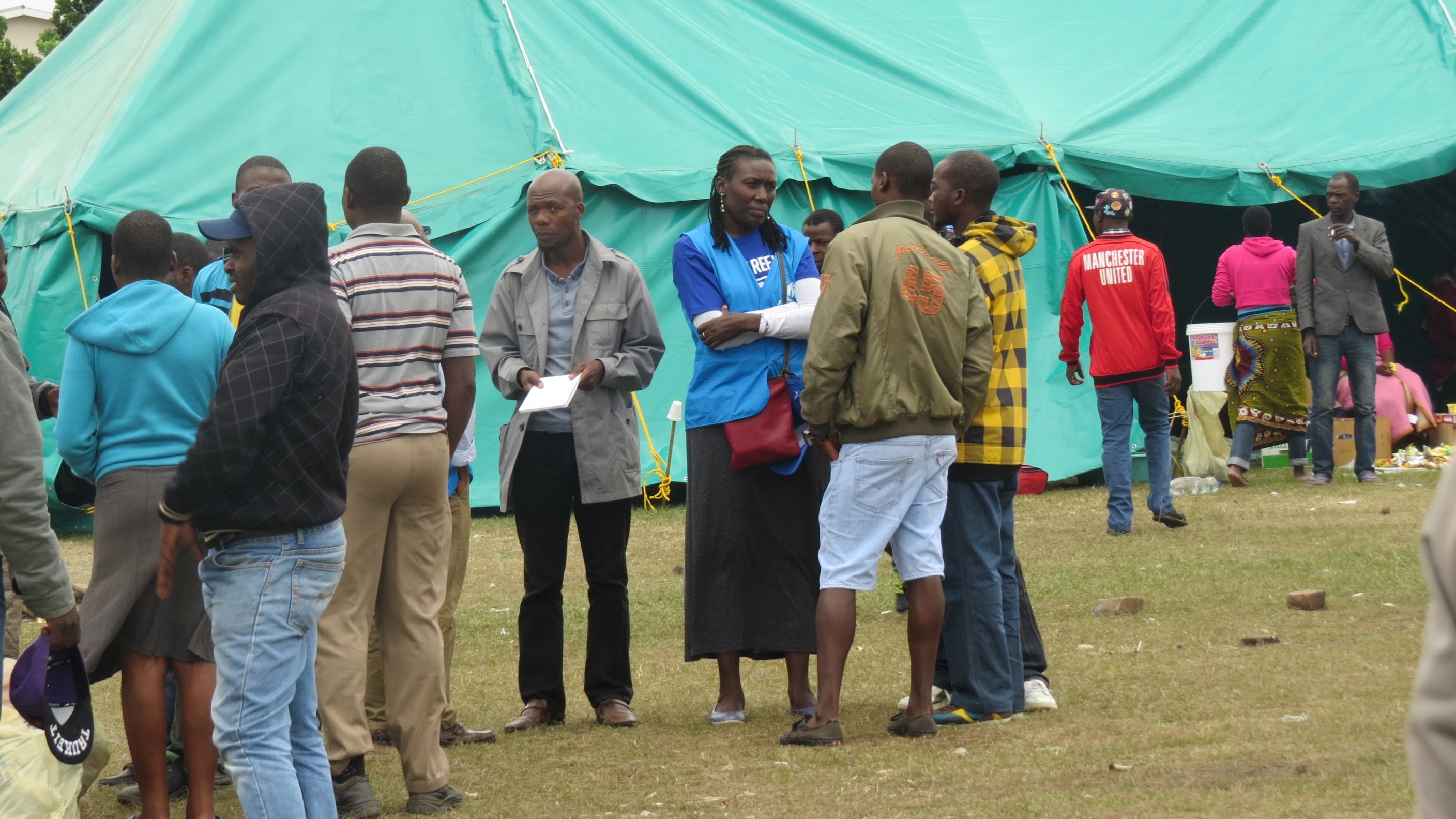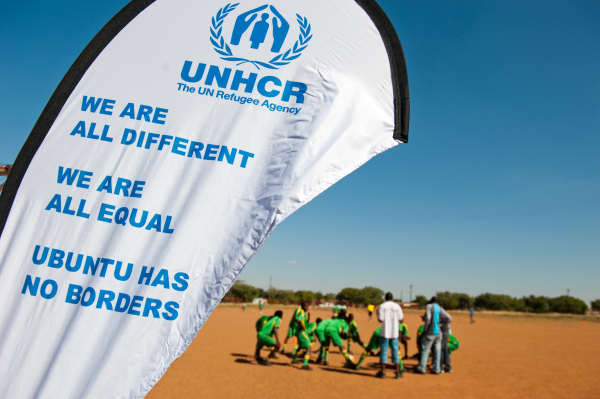Somali refugee traders and their South African hosts struggle to get along
Somali refugee traders and their South African hosts struggle to get along

PORT ELIZABETH, South Africa, March 13 (UNHCR) - Fleeing war-ravaged Somalia for the relative peace and security of South Africa is not paying dividends for the many refugees who find themselves singled out for xenophobic attacks, which the Somali Association of South Africa claims have left more than 400 people dead in the past decade.
UNHCR is concerned about the increase in the number of attacks on Somali refugees. Skilled traders by nature, many Somali refugees and asylum seekers have in the last three years set up businesses in townships and informal settlements characterised by grinding poverty and growing crime.
But this appears to have caused resentment in some of the townships and settlements, which have erupted in xenophobia-fuelled animosity towards Somali refugees. Uneasy with their presence, marauding residents appear to be bent on expelling them from these communities by looting and destroying their businesses.
"Somali refugees are moving away from the traditional areas of refugee residence in Cape Town, Durban, Johannesburg, Pretoria and Port Elizabeth for more remote towns and villages in South Africa's interior. They are establishing themselves in communities that have had no previous interaction with foreigners before," said Monique Ekoko, a UNHCR protection officer.
In Motherwell, a township of Port Elizabeth, Somali community leader Abdirisack Dubow was puzzled that locals should find them a threat. "We make a valuable economic contribution. We rent houses from locals and create jobs as well. We also offer cheaply priced goods to the disadvantaged communities in which we operate," he said.
But other Somalis suspect local businessmen, angered at being undercut and alarmed at the competition, are behind recent attacks on their shops in Motherwell and the rising tension between locals and Somali refugees.
Somali leaders have also accused the police of helping themselves to their goods during attacks. The police firmly deny such charges and say that any goods they are able to salvage during the looting of Somali shops are taken to the local police station for safe keeping.
Joseph Matshapa, a community police forum officer in Motherwell, said police have introduced several measures aimed at protecting Somali businesses. "The police patrol Somali business areas at all hours. After each patrol, the shop owner and the police both sign a confirmation of patrol booklet, which is proof that the police are trying to uphold safety and security," he noted.
After one recent attack on a Somali store, a community meeting was called by ward councillors and the attendees reprimanded local residents. But the Somalis here in Motherwell township believe the South African government should compensate them for loss of goods.
They also want the government to guarantee their safety and have asked for the removal of certain police officers they suspect of colluding with local businessmen to expel them from the township. Police deny the charges.
But the residents of Motherwell believe that the Somali refugee community also has questions to answer. They want proof that Somali businesses are registered and pay tax. They also want to know if Somali businesses that hire South African nationals are complying with unemployment insurance regulations and if the goods they sell are sourced legitimately and meet quality standards set by the government.
"A level of transparency and forthrightness is required in responding to these questions," said UNHCR's Ekoko. "The issue of pricing is a major concern to local business communities. A commitment to resolving what appears to be an impasse is required of both local and Somali refugee traders if they are to live together harmoniously.
"Similarly, while keeping the South African population informed of the causes and other factors that give rise to refugee outflows, Somali refugees have to be encouraged to coexist more productively with their hosts. Unfortunately, it appears as though refugees don't make the effort to be part of the community they work in and that is just a recipe for conflict," she added.
The South African government, meanwhile, is taking the matter very seriously. "Integration faces its own challenges, given high levels of poverty and competition for resources and services, as well as also being compounded by xenophobia and unacceptable levels of intolerance and prejudice," Minister of Home Affairs Nosiviwe Mapisa-Nqakula was earlier this month quoted by the press as saying. "These at times have resulted in acts of violence and other criminality directed at refugees."
She said that South Africa's Refugees Act of 1996 would be amended this year and that would provide more efficient refugee management in the country. UNHCR hopes that as the government becomes increasingly vocal on this matter, the people of South Africa will take its concerns to heart.
By Pumla Rulashe in Port Elizabeth, South Africa








